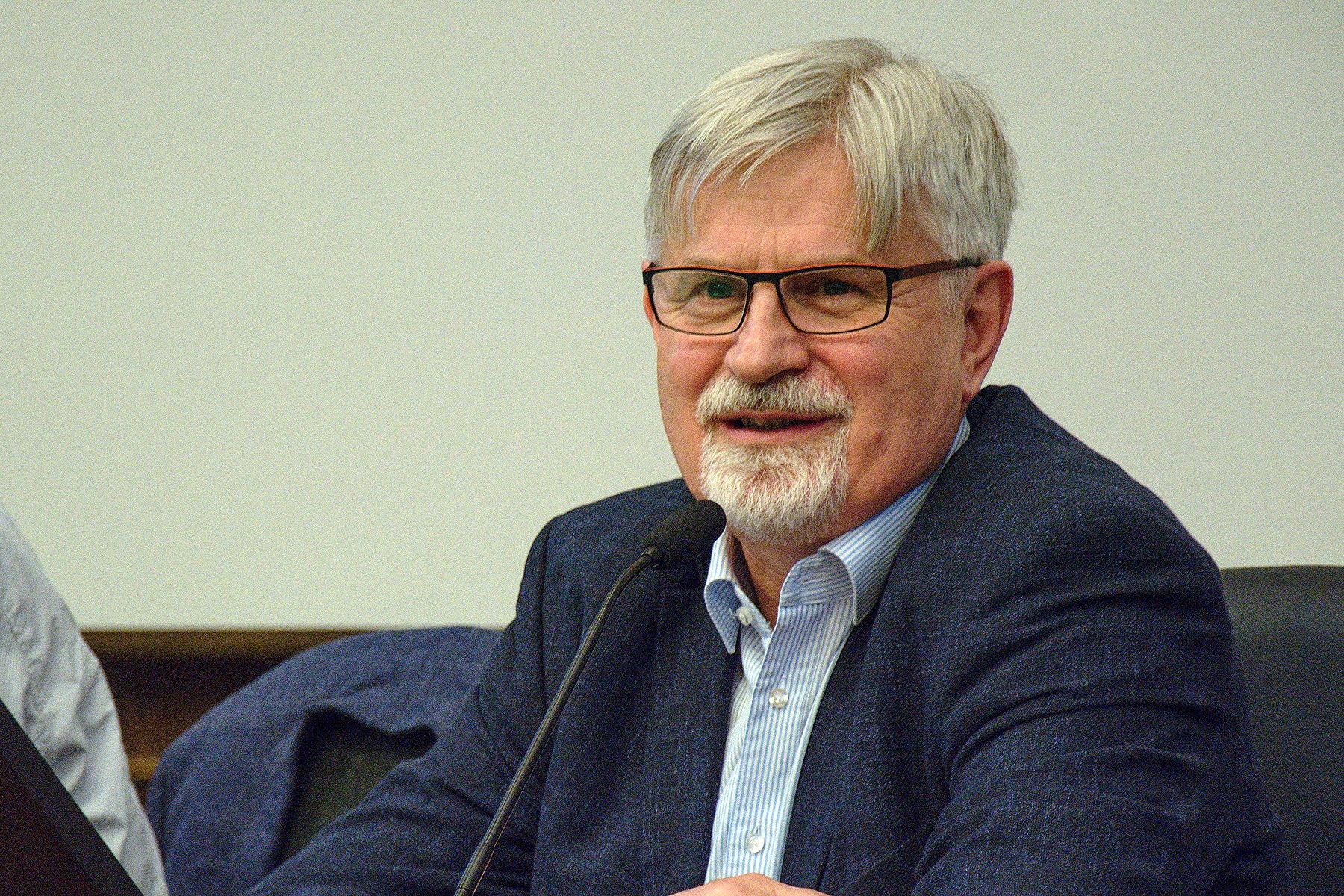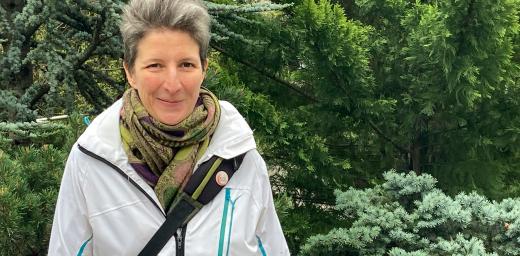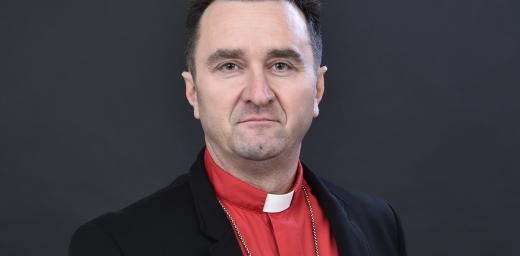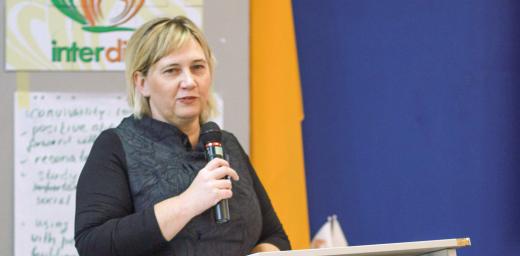Being church in the Czech Republic

Rev. Daniel Ženatý has been Synodal Senior of the Evangelical Church of Czech Brethren since 2015. Photo: ECCB
An interview with Daniel Ženatý, Synodal Senior of the ECCB
(LWI) – The Czech Republic, with its about 11 million inhabitants, is generally regarded as one of the most atheistic countries in Europe. Based on official figures on religious affiliation, more than two thirds of the Czech population do not belong to a religious community. With its approximately 75,000 members, the Evangelical Church of Czech Brethren (ECCB) is the second largest church in the country, after the Roman Catholic Church. Since 2004 the church a member of the Lutheran World Federation (LWF).
Synodal Senior Daniel Ženatý spoke to Lutheran World Information about the significance of the ECCB in Czech society and how the church is facing up to its challenges.
Please introduce us to your church and its role in Czech society.
The ECCB was built on the foundations of the Reformer Jan Hus, the historical Unity of Brethren, whose last bishop was Jan Amos Comenius, and on the (Lutheran and Calvinist) worldwide Reformation. Our church was founded in 1918 after the collapse of the Hapsburg monarchy, precisely through a union of the Lutheran and Calvinist confessions.
Our church is the second biggest church in the Czech Republic and is one that faces up to societal challenges and takes an interest in what happens in society. The church leadership – i.e. the Synodal Council and the synods – speak out on different social issues. Two examples: recently we asked Czech Prime Minister Andrej Babiš to act on the request to receive children from the refugee camps in Greece. And we issued a declaration on the risk of abusing the concept of “Christian values.”
In May 2019 the ECCB adopted a strategic plan. Was there a particular reason for this step?
The main reason was a complete change in the financing of the church. As of 1948 the Communist regime paid the pastors’ salaries, in order to show that the state allegedly provided outstanding conditions for the churches. Instead, however, it persecuted the churches and income was far below the average.
In 2013 there was a de facto separation of church and state. The state’s payments for salaries are being reduced by 5 percent annually and will dry up in 2030. This is a good development, in my opinion. Now it is up to us to reach financial autonomy. That will depend, among other things, on what the church means for us as its members. So, we have also had to make clear what we really want, what is essential and what is not so important.
How did you go about this and who was involved?
The Synodal Council mandated a 13-person commission to devise the strategic plan. As far as possible, it represented all the different types of piety and areas of work in our church. It took over two years to complete the plan. We wanted to create something vibrant and manageable – not a boring, heavy document that would gather dust over time.
The work began with the selection of essential points for the life of the church. Then we described the current situation of these points and worked out objectives. Finally, we tried to determine how the desired changes could be reached.
What are the most important goals that your church has set itself until 2030 – i.e. for the next 10 years?
We would like to build up lively congregations that respond to the spiritual yearning around us with the Christian message. Closely linked to this is nurturing our faith through worship and catechism classes, through diaconal action and bearing witness.
For all these areas of activity we need women and men who will take on responsibility in the church and congregations – in the ministries of elders and curators, of lay preachers or ordained pastors. We want to concentrate on the working conditions in the congregations, the education and training of our staff and the recruitment of young people to serve the church.
The transfer to self-financing requires a new look at our leadership activity and the economic aspects of our church. We want to tap into and maintain new sources of finance for our work and our staff.
To what extent can other churches benefit from your approaches and learn from your ideas - in the LWF Central and Eastern Europe Region and beyond?
Churches in our region have similar challenges. When we read the program or the decision of synods or governing bodies of churches in the region, we see how many responsibilities we have in common. We can learn a lot from each other.
Questions that link us together relate to the rise in extremism, intolerance and anti-Semitism, and how we should deal with them. In fact, it is good, and even necessary, to stand together, informing one another about ways of actively tackling these challenges, and offering support.
What role do global ecumenical partners and the LWF play in your process? Do you receive particular forms of support?
Our partners play an important role. We meet regularly, we talk and we mutually support one another. This breaks through the feeling of solitude when it comes to solving problems. Alone, it would be hard for each church to find a solution. Ideas developed by one can be taken over by others.
How do you find personal encouragement in your faith and your leadership office?
I am constantly surprised by the words and deeds of Jesus Christ. How modern they are and how necessary in the present situation! And at the same time: how disturbing… he came into the world with his own accentuation and interpretation of God’s will. He came to the cross. On the one hand, I see joy in the power of the gospel: there are many good things in the church and in society. On the other hand, I note that we will encounter obstacles and rejection until Jesus comes again.
I hold fast to the belief that God has called me to this place. Although I am still surprised at how well he knows my mistakes and weaknesses. What’s more, I am sustained by the trust of others. And also by my inner freedom to be able to give up the office of Synodal Senior if this trust should dwindle.
The Lutheran World Federation is a global body that shares the work and love of Christ in the world. In this series, we profile church leaders and staff as they discuss topical issues and set out ideas for building peace and justice in the world, ensuring the churches and communion grow in witness and strength.





